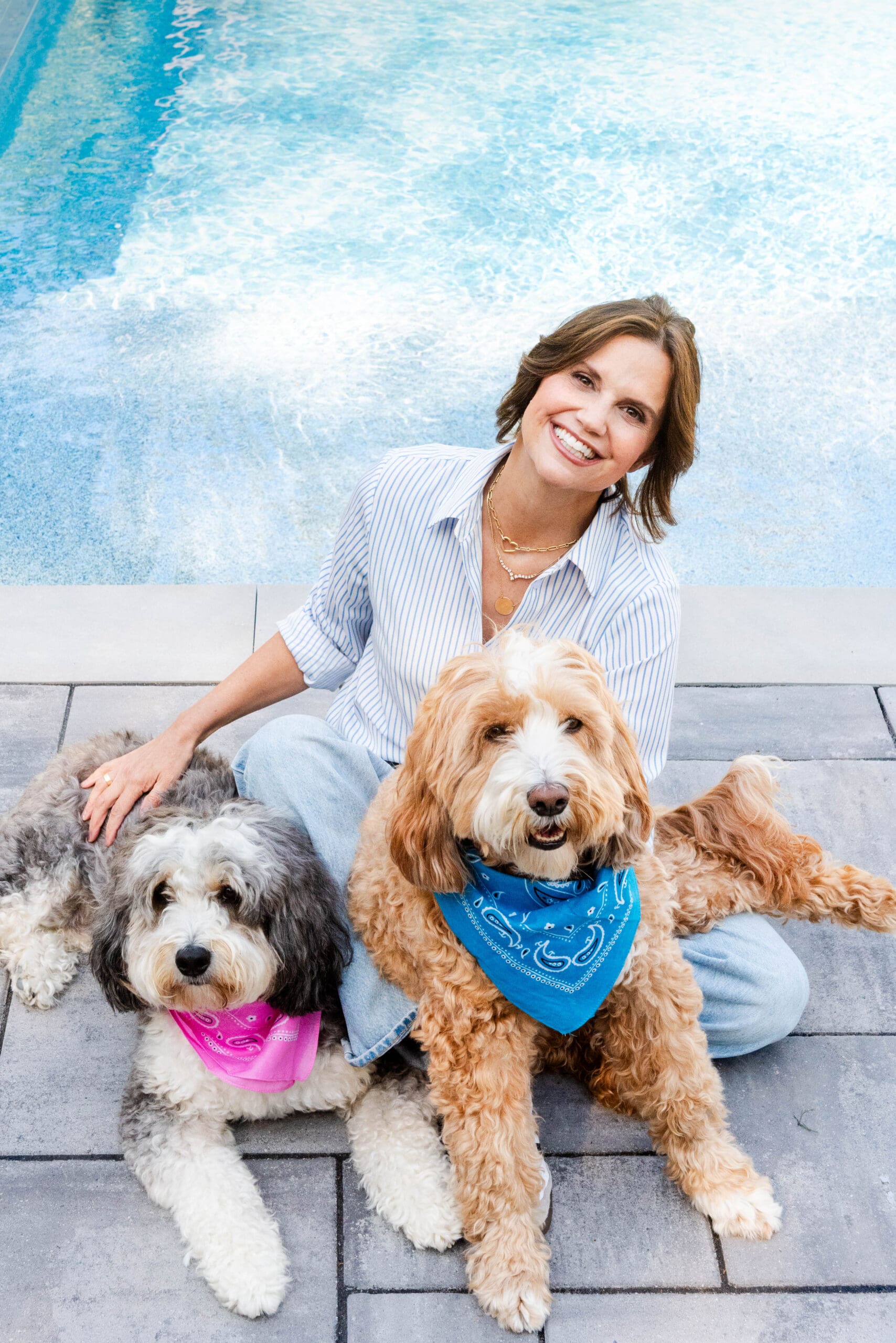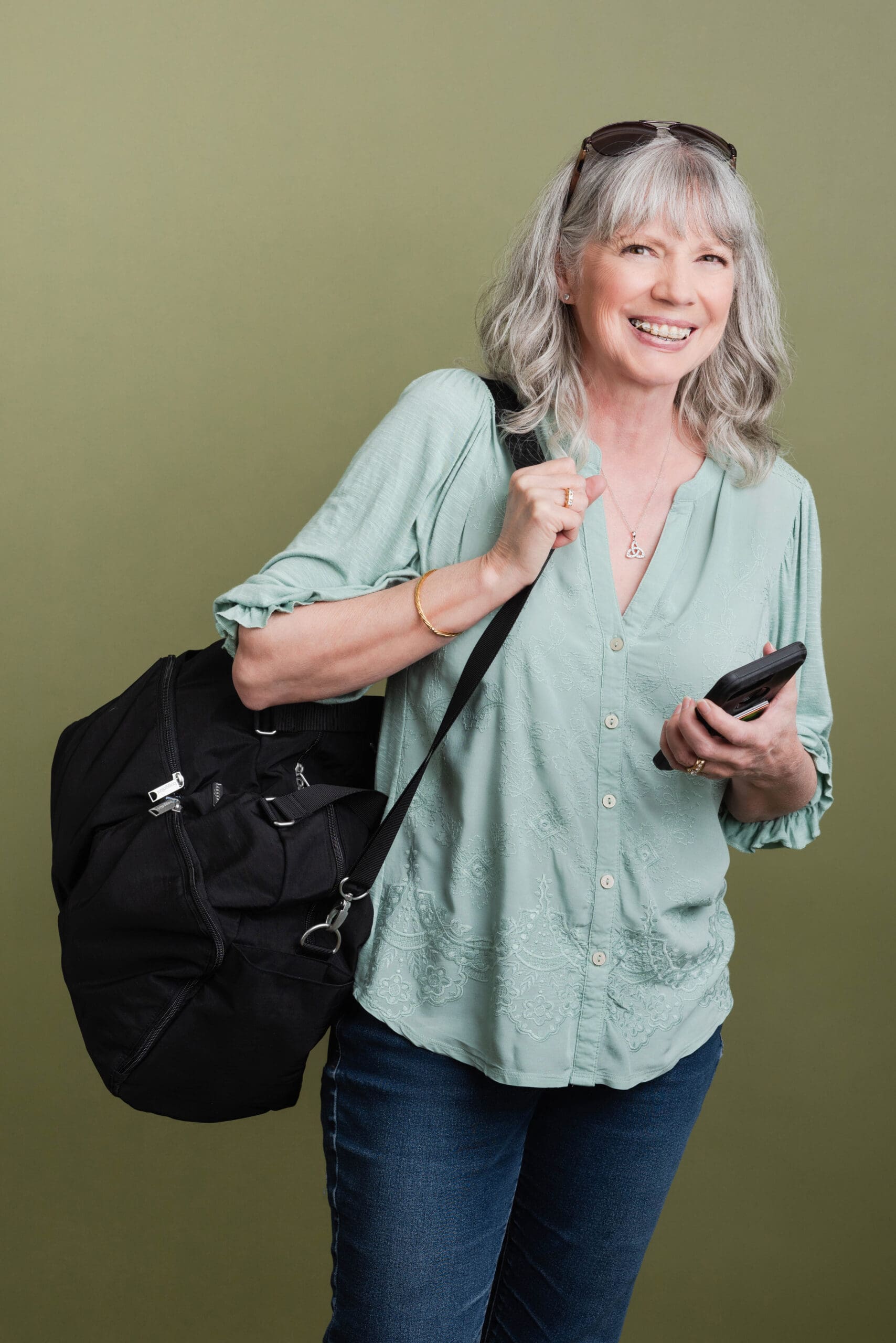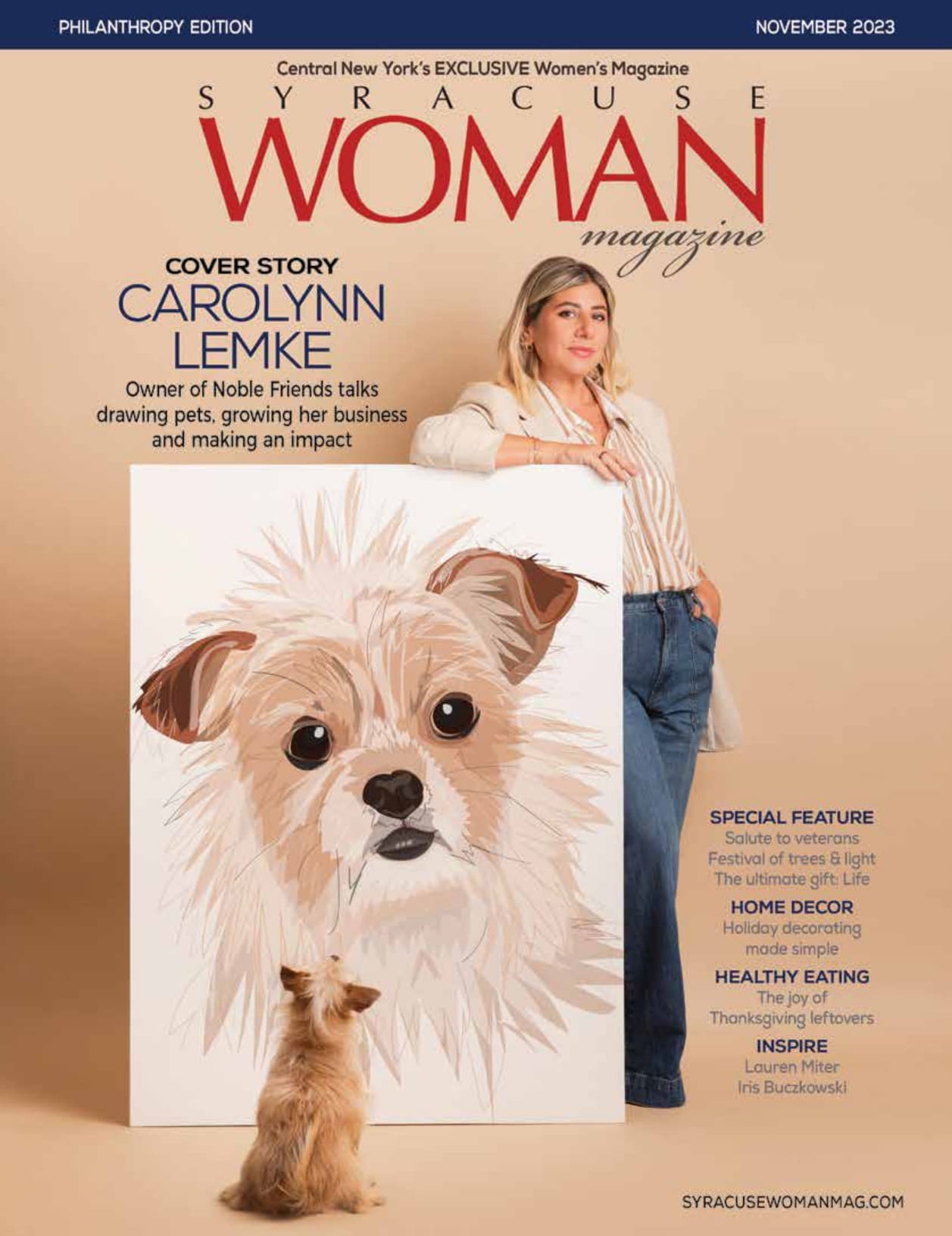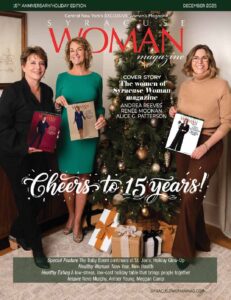By Norah Machia
As a young breast cancer survivor, Amber M. Howland is hoping that by sharing her story, it will help save the lives of other women.
“You can take a terrible situation and just stay at home,” said the Syracuse resident. “But nobody would benefit from me keeping quiet. If one woman hears my story and decides to get a mammogram, then I’ve done my job.”
Amber was diagnosed with breast cancer at the age of 37, and suddenly found herself having to make an overwhelming number of critical decisions about her future. “I have learned so much through my journey that I want to share with other young women,” such as breast cancer treatment and prevention options, genetic testing and egg preservation, she said.
At the same time, Amber has also become an advocate for raising awareness about rarer forms of cancer because “they don’t get a lot of attention,” she said. In May, she participated in the “Cycle for Survival” event in New York City, raising more than $11,000 for the rare cancer research studies being conducted at the Memorial Sloan Kettering Cancer Center.
She will be launching her second fund-raising campaign for the organization this fall to participate in the 2023 event. Amber cycled on an indoor bike for four hours during this year’s gathering with hundreds of other cyclists.
The center is researching new treatment options for several types of rare cancers, including sarcomas, which develop in the bones and soft tissues, including the fat, muscles, nerves and blood vessels.
While undergoing her own radiation treatment, she started the “Amber Vs. Cancer” initiative, after realizing she could use the large amount of attention given to fund-raising for breast cancer research to put the spotlight on other lesser-known forms of cancer. Amber is working to support new and better treatment options for these patients, who are often young children.
Although breast cancer is primarily found in older women, nearly 10 percent of all new cases in the United States are diagnosed in women younger than 45 years of age, according to the Centers for Disease Control and Prevention. These cancers are likely to be hereditary, more aggressive and discovered at a later stage, making them more difficult to treat.

Amber didn’t plan on getting screened for breast cancer until she hit her 40s. But the unexpected loss of her mother in February of 2021 changed her mind.
“My mother died of cancer,” said Amber. “She had been misdiagnosed, and it was found throughout her body. We’re not sure where it started.”
She decided to ask her doctor about ordering a mammogram. At the time, the doctor didn’t think she was at risk because of her younger age, but ordered the screening test at Amber’s request. “I actually put it off for a few months because there didn’t seem to be a sense of urgency, and I was still grieving the loss of my mother,” she said.
Amber went for her mammogram in November of 2021. She was told an ultrasound would also be needed because of her dense breast tissue, a common issue with younger women. “The technician started chatting with me, and then she got really quiet,” said Amber. “I knew something was wrong and I became emotional. She told me to just breathe.”
A physician came into the room and told Amber they needed to perform a biopsy and send it for testing. “He said they found something on the ultrasound, and they weren’t sure what it was, but it most likely not cancer,” she said. “But something in my gut told me it was.”
When the results came back, her worst fear was confirmed. Amber was diagnosed with Stage 1 breast cancer. Her life was suddenly on a fast track for survival.
There were treatment options to discuss and other critical decisions that needed to be made. Amber chose to have lumpectomy surgery, followed by radiation treatments.
The next decision she had to make caught her off guard. Amber was told the radiation treatments could potentially affect her fertility, making it difficult, if not impossible, to become pregnant in the future.
She was given the option of collecting her eggs through in vitro fertilization (IVF) and creating fertilized embryos for frozen storage.
“I was in the hospital room the night before Thanksgiving,” said Amber. “I was told that if I wanted to have children, I would need to start IVF the following week.”
For Amber, it was a clear choice. “I had always wanted to be a mother,” she said. “I told my husband, Mark, who was my boyfriend at the time and was in the room with me, that we needed to make some embryos.”
Amber was feeling fortunate because her breast cancer was caught in the early stages, and her surgery and radiation treatments were successful. Her comprehensive health insurance plan through her job covered most of her diagnostic and treatment costs, along with the IVF therapy, so she did not face a financial crisis because of her cancer diagnosis. “I know for some women, that is not always the case,” she said.
She has a strong support system with her husband, Mark Smith, whom she married this past June. “I knew I could handle breast cancer, but I also needed a partner to help me handle it,” she said. “Mark is the best.” Amber has been supported by her younger sister, Lindsey, who also lives in Syracuse. “But I learned quickly that when you are declared cancer free, that is just the starting line,” she said.
After her treatment, Amber was tested for the gene mutations that put women at higher risk for breast cancer, and was found to have one (a mutation in the lesser-known ATM gene). It meant there was up to a 60 percent risk that her cancer would return over her lifetime.
Amber has made the difficult decision to have a double mastectomy (surgery to remove both breasts) in the future as part of her cancer prevention plan. For now, Amber is being monitored and checked every six months with alternating mammograms and MRI testing.
She plans to wait on having a mastectomy until after she becomes a mother.
Amber and her husband recently met with a cancer fertility specialist at the Dana Farber Cancer Institute in Boston. She was advised to remain on her medication to suppress her estrogen levels until next June, and then she will be able to be off the medication for a year.
“I was given hope after that meeting,” Amber said. “I was given a choice about my future.” If a pregnancy does not work out, the couple will consider adoption.

Amber is urging young women to understand their breast cancer risk and be proactive about their health. Treatment works best if cancer is detected in the early stage.
“I’m fortunate because I have options,” she said. “A lot of people don’t find out until it’s too late.”
She is hoping to spread awareness about breast cancer and to raise funds for the next “Cycle for Survival” through her website, www.amberhowland.com, along with her social media accounts: @ambervscancer on Instagram, and Amber Smith on Facebook.
“I want to continue getting my message across about the need to support funding for rare forms of cancer,” while also urging young women to find out their risks for breast cancer, she said.
Amber is no stranger to fund-raising. Before her cancer diagnosis, she was already helping others.
During the COVID-19 pandemic, Amber raised $12,854 for the Food Bank of Central New York, along with supporting more than 100 struggling businesses (primarily restaurants) by promoting their updated hours and curbside pickup options on her social media sites.
A longtime runner, Amber raised the funds by completing 620 miles in 108 days (an average of roughly six miles a day) as part of a 1,000K virtual challenge run started during the pandemic by the One NY organization.
She decided to sign up for the virtual run just a few weeks after the pandemic hit, in May 2020, to help deal with the stress of being homebound, and to continue being active.
“I also decided that I wanted it to be bigger than me just running,” she said. “I had dinner with my sister one night, and I came up with the idea of having a charity aspect to my run.”
She arranged with the Food Bank of Central New York to have a link from her website directly to their landing page where people could donate.
“At that time, I wanted the money to stay in the community where people could immediately see the results,” Amber said. “I was able to take my anxiety and fear about COVID-19 and turn it into something positive.”
Her “Amber Vs. Cancer” initiative is now taking her fund-raising efforts nationwide, to help those battling rare forms of cancer receive the attention they deserve, she said.
“Anyone can do this type of fund-raising,” Amber said. “I really believe that people want to help others, but they may not know how. If you give them the chance, people will come forward and help.”






You must be logged in to post a comment.